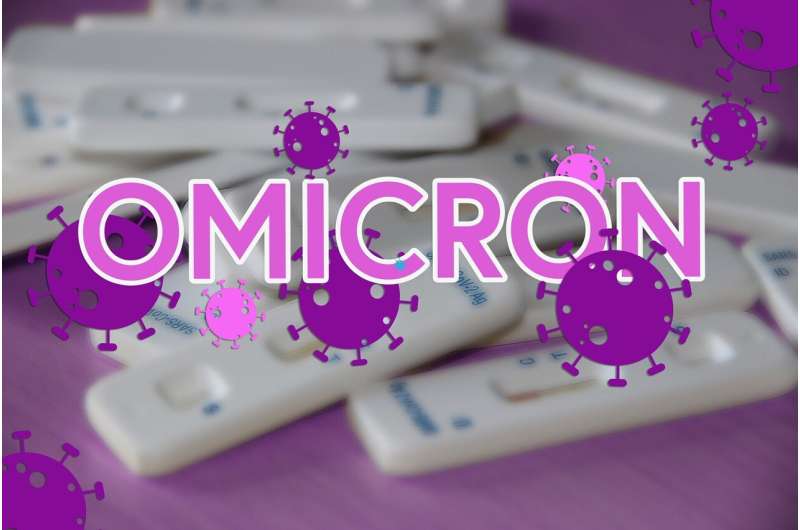
The U.S. Food and Drug Administration said Monday that it will curtail the use of two monoclonal antibody treatments that do not appear to work against the highly contagious Omicron variant.
The combo treatments bamlanivimab/etesevimab and casirivimab/imdevimab, made by Eli Lilly and Regeneron, respectively, performed well against earlier variants, but only a third antibody therapy made by GlaxoSmithKline has stayed strong against Omicron.
Last week, the National Institutes of Health updated its guidelines to advise clinics against using the first two treatments on patients with mild to moderate COVID-19 due to their diminished effectiveness.
“Ensuring that healthcare providers on the frontlines have the best tools available to treat patients is a top priority for the agency,” Dr Patrizia Cavazzoni, director of the FDA’s Center for Drug Evaluation and Research, said in a statement issued Monday.
Based on the latest data, the new directive limits use of the Eli Lilly and Regeneron products “to only when the patient is likely to have been infected with or exposed to a variant that is susceptible to these treatments.”
Those cases are likely to be rare, since the Omicron variant now accounts for more than 99% of U.S. cases, according to federal data. So, “these treatments are not authorized for use in any U.S. states, territories and jurisdictions at this time,” Cavazzoni said.
This doesn’t leave Americans stricken with COVID-19 defenseless, however.
“Importantly, there are several other therapies – Paxlovid, sotrovimab, Veklury [remdesivir] and molnupiravir – that are expected to work against the Omicron variant, and that are authorized or approved to treat patients with mild-to-moderate COVID-19 who are at high risk for progression to severe disease, including hospitalization or death,” Cavazzoni said.
Senior health officials in the Biden administration have already called governors and state health officials to urge them not to use the Regeneron and Lilly antibody cocktails, a senior official with knowledge of the process told CNN.
But some governors have not been heeding that advice. Over the last two weeks, states have distributed nearly 110,000 doses of the Lily and Regeneron treatments, according to a federal database maintained by the Department of Health and Human Services, CNN reported.
Earlier this month, Florida governor Ron DeSantis criticized the Biden administration for pausing shipments of the monoclonal antibodies, and has pushed for the treatment to remain widely available in his state. During a Jan. 3 media briefing, DeSantis claimed his administration had seen the treatments work on Omicron patients, CNN reported. Nearly 13,000 doses of Regeneron were used in Florida over the past two weeks, more than any three other states combined.
“Omicron is not the only variant that’s out there,” DeSantis said. “And it’s something that we actually have seen applied with Omicron patients and we have seen symptoms resolved.”
But Regeneron itself has stated that its monoclonal antibody treatment, known as REGEN-COV, is now ineffective against the Omicron variant.
Still, DeSantis has made monoclonal antibodies a cornerstone of his response to surges of coronavirus cases in his state, often pushing the treatment more vigorously than vaccines. Last summer, he introduced clinics where individuals could receive the treatment right after symptoms surface or there is exposure to someone with COVID-19.
Other governors have followed suit: Texas Gov. Greg Abbott last year opened “infusion centers” where COVID-positive patients could receive monoclonal antibody treatments. Abbott himself received Regeneron’s treatment when he tested positive for coronavirus back in August, when the Delta variant was predominant, CNN reported.
After the Omicron variant was first detected in the United States at the beginning of December, the Biden administration continued to ship the Regeneron and Lily treatments while Delta remained a threatening variant. But with Omicron dominating now, federal officials had hoped most states would stop using the treatments, a senior official told CNN.
Source: Read Full Article


